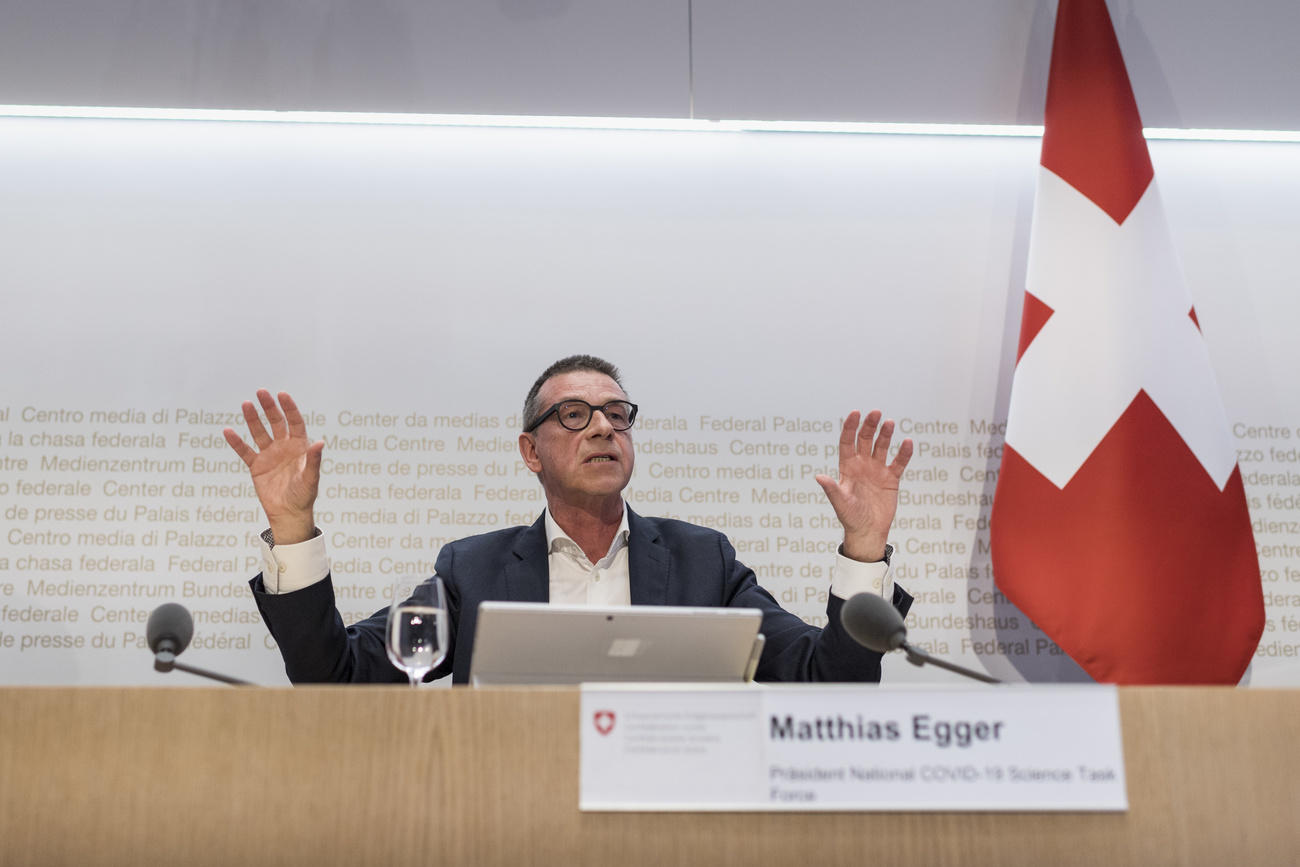
Head of Covid-19 task force says distancing measures could last another two years

Unexpected discoveries about a virus scientists still don't know well could slow down the development of a safe and effective vaccine, Matthias Egger said in an interview published on Sunday.
Egger, who leads the scientific task force set up by the Swiss government to coordinate advice and research on the virus, told the NZZ am Sonntag newspaper he hoped large-scale vaccinations could take place in the context of studies in a year’s time.
But until doctors have all the answers to the virus, measures like social distancing should continue in a bid to keep the reproductive rate or R0 factor (the estimated number of new infections caused by a single case) below one – and thus slow the spread of the virus.
“We may have to live like this for another two years or more,” he said.
His views were echoed by Didier Pittet, head of the infection control programme at Geneva University Hospital.
Pittet told the newspaper Le Matin Dimanche that Switzerland has managed to lower its R0 factor from a high of 3.8 at the start of the outbreak to 0.6, following lockdown measures.
To prevent another spike, he said social distancing, good hand-washing and wearing masks in certain situations may be necessary in the long term.
Low risk of children infecting others
Asked whether children can spread the virus, Egger said that, looking at data on cases worldwide, “children do not play a major role in the spread of the virus”.
“But there is never any absolute certainty.”
As for people over 65 hugging their grandchildren, as the government delegate on the Covid-19 pandemic, Daniel Koch, said it was safe to do: “As a father, I say I would make sure that the children don’t spend too much with [their grandparents].”
“If the grandparents are frail, the distance should be kept,” the epidemiologist cautioned. “So no hugs.”
Re-opening schools “carefully is the right thing to do,” he added. “Since kids are likely to be bad carriers [of the virus], the risk of them infecting someone is small.”
The professor of public health at the University of Bern revealed that the federal government has not heeded all of the recommendations of the independent task force. It had proposed a gradual return to schools, first with a maximum of 15 pupils per class.
The government did not take this onboard, although some cantons are following the task force’s proposal as they prepare to re-open compulsory schools on May 11.
Egger did not believe that politics had taken precedence over science when it came to easing lockdown measures in Switzerland.
“But it is clear that economic interests play a role in these decisions,” he said. “The social consequences of a lockdown also have to be taken into account, and not just the protection of public health.”

More
Coronavirus: the situation in Switzerland

In compliance with the JTI standards
More: SWI swissinfo.ch certified by the Journalism Trust Initiative






























You can find an overview of ongoing debates with our journalists here . Please join us!
If you want to start a conversation about a topic raised in this article or want to report factual errors, email us at english@swissinfo.ch.